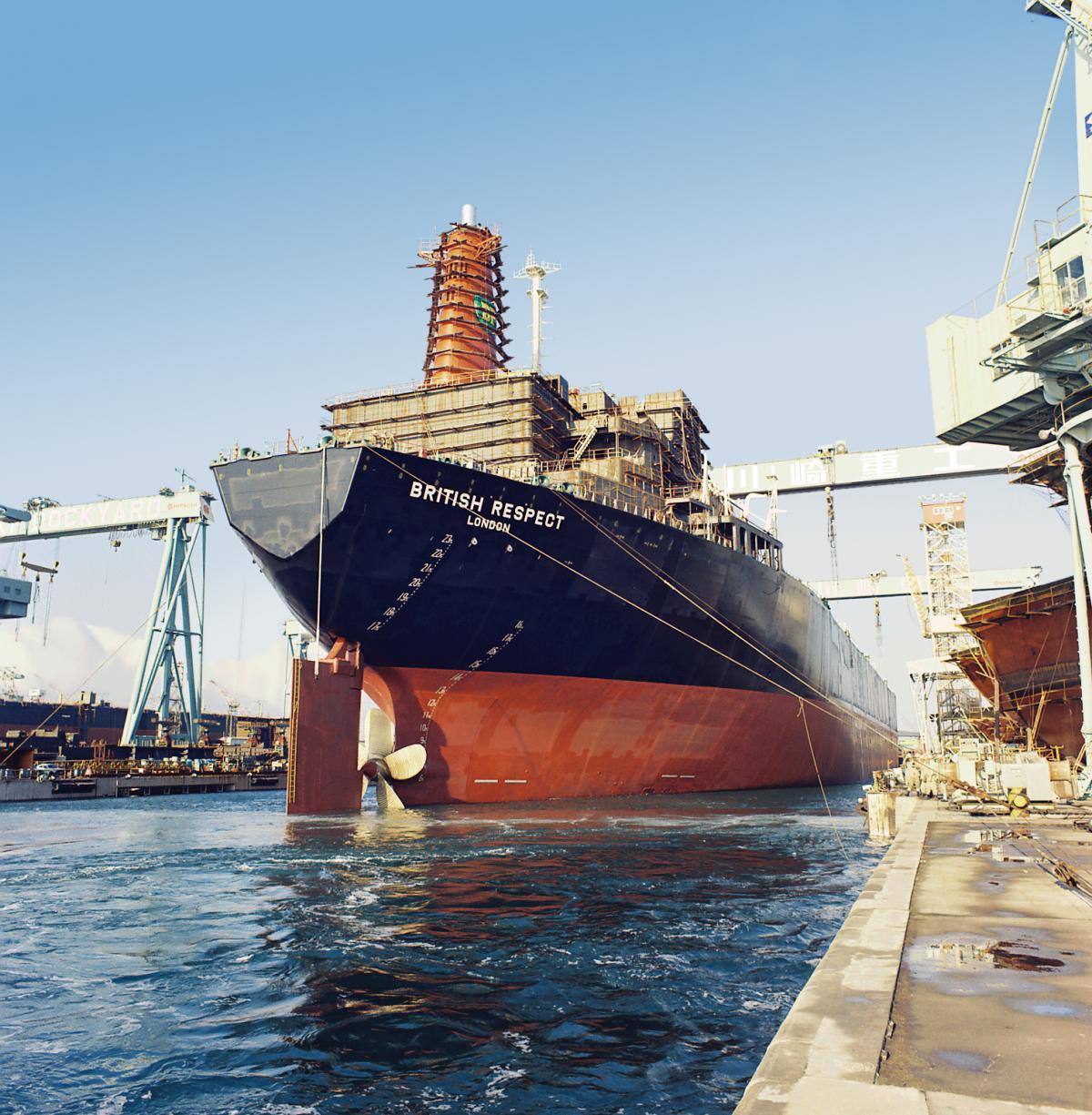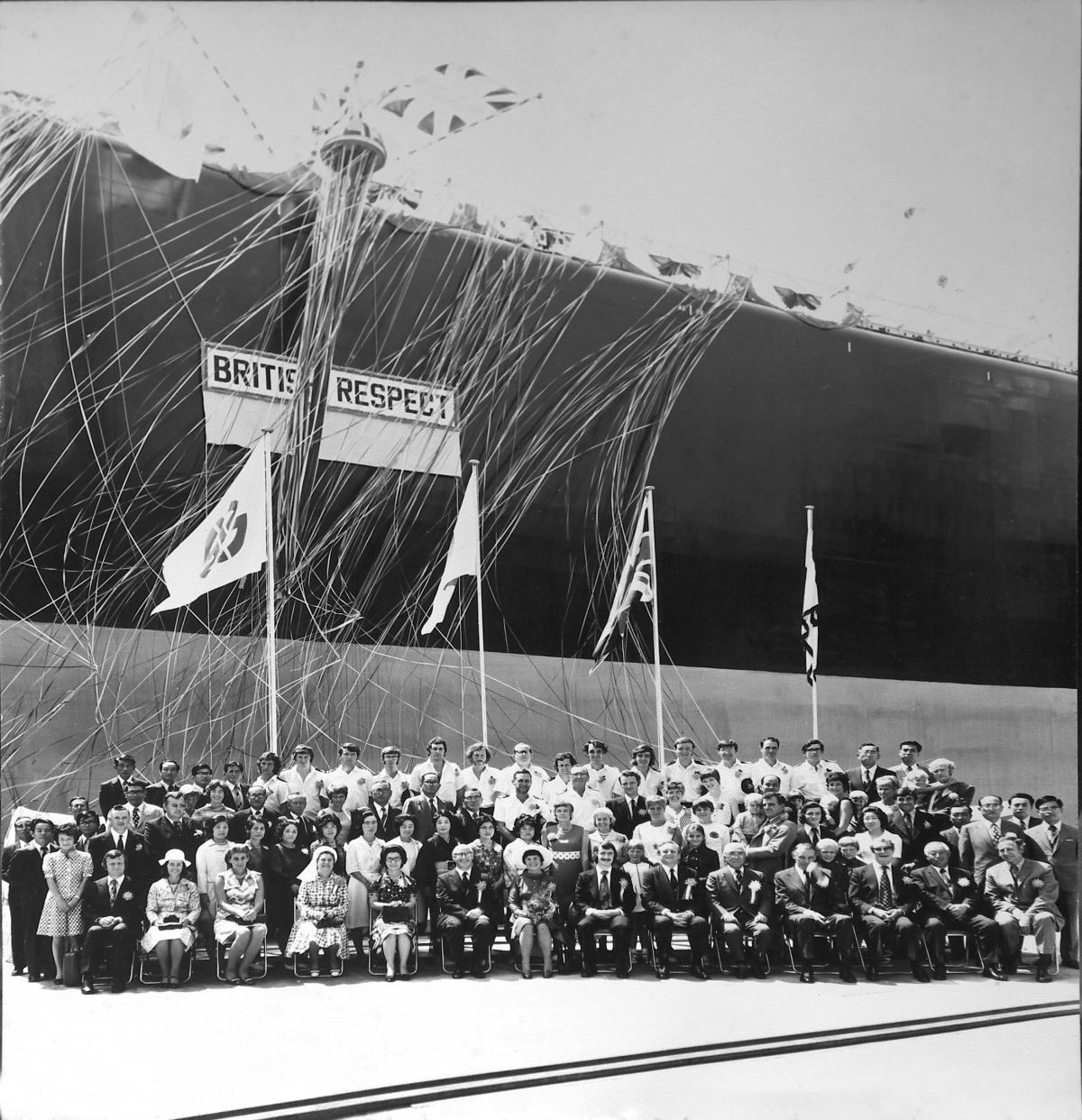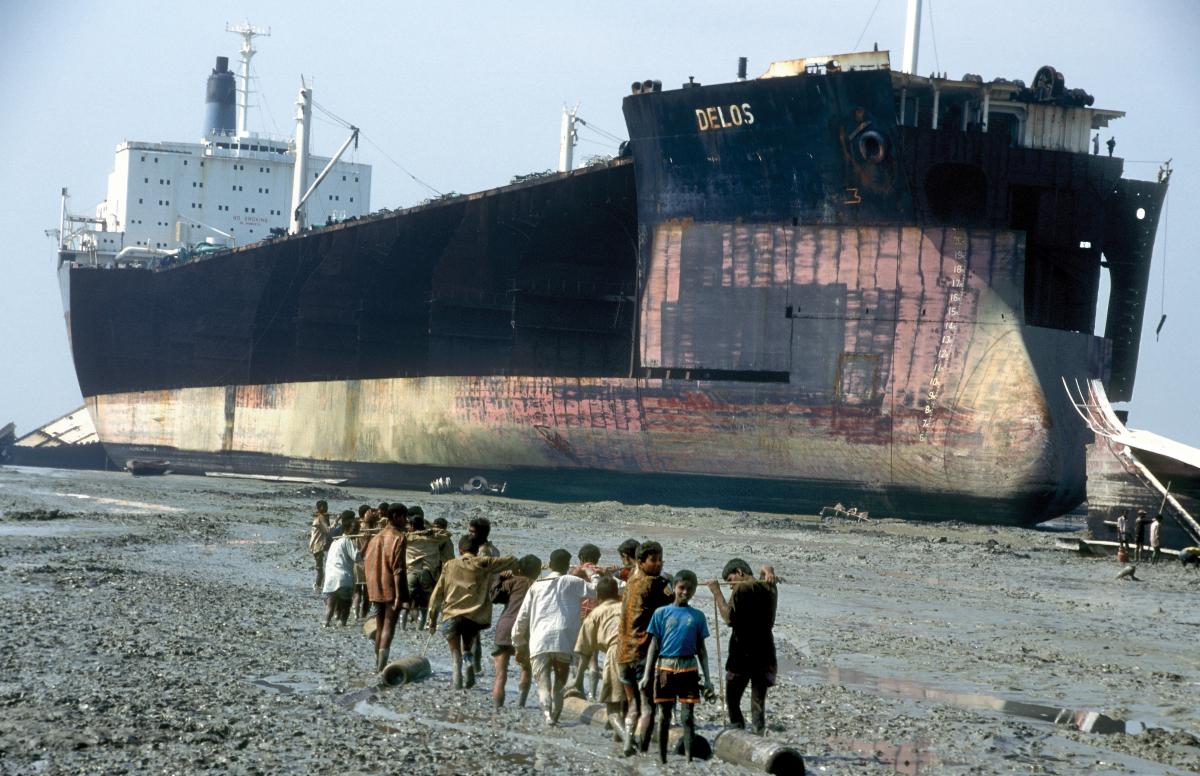British Respect
The story behind the enigmatic photo of a beached supertanker.
Cover photo: British Respect served all over the world. In 1983, for example, her route took her from the UK to Kharg Island (Iran), around the Cape of Good Hope (South Africa) to St Lucia and St Croix (the Caribbean), down to Cayos Arcas (Gulf of Mexico), then to Bilbao (Spain) and through the Suez Canal to Dubai. (Photo courtesy of Kawasaki Heavy Industry Ltd)
British Petroleum ordered the construction of this supertanker a year after the 1973 oil crisis. Having lost most of its direct access to crude oil sources in the Middle East, BP was looking to diversify its operations and commissioned Japanese shipyard Kawasaki Heavy Industry Ltd in Sakaide to build this VLCC (Very Large Crude Carrier). Originally named British Respect, and operating under the UK flag, she was one of BP’s largest tankers, capable of holding over 2,000,000 barrels of oil, which is approximately the daily oil consumption of the United Kingdom today.
Bob Bryne served on the ship as a radio officer in 1980. He was joined by his wife, and for the first month of their service they were anchored in Lyme Bay, UK, where they were frequently visited by their friends and family. They could enjoy parties on board most weekends, as well explore the coast in lifeboats. Not everyone had such a good time. Another former crew member who prefers to remain anonymous is trying to forget memories of his service as the ship was constructed using blue asbestos, a material known at the time to present serious health hazards.

British Respect in construction (Photo courtesy of Kawasaki Heavy Industry Ltd)

On 29 April 1974, British Respect was launched by Kawasaki Heavy Industries in Sakaide, Japan. (Photo courtesy of Kawasaki Heavy Industry Ltd)
In 1986 British Respect was transferred to the Gibraltar registry, and in 1987, while docked off the coast of Iran in the Persian Gulf, she was bombed and set ablaze by Iraqi aircraft. In 1988 she returned to service and was re-registered in the Bahamas.
You seem to enjoy a good story
Sign up to our infrequent mailing to get more stories directly to your mailbox.In 1992 the 336-metre-long tanker was sold to Delos Maritime Corporation, a Greek company specialising in opportunistic vessel acquisition. Renamed Delos, the oil tanker operated for another seven years before it was decommissioned and sold for scrap. At that time, the average price of non-stainless-steel tankers for demolition was approximately $400 per ton, which at around 40,000 tons would put the value of the Delos over $16 million.

Delos in Chittagong (Photo: Fred Hoogervorst)
She arrived at Chittagong, Bangladesh in October 1999, a place infamous for its ship-breaking industry. Bangladesh is the number one ship demolisher in the world, dismantling around 150 ships a year. Salvaging the metal for scrap in Western countries costs more than the value of the scrap metal itself. In the developing world, however, shipyards operate with high health risks and low-paid workers, a practice condemned by international organisations and Western companies that use those ships.

